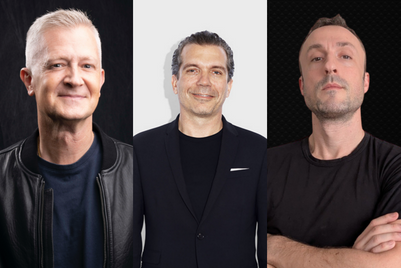
Could it really be that one of the last bastions of original social media could be about to go up in a puff of smoke? I don’t envisage #deletetwitter happening in the immediate future, not for me at least, but the strange twists and turns taking place at Twitter HQ are concerning for the average user, as they are for the advertisers that have supported it for years.
Twitter was, for me, and many others I know in real life, the first exciting workplace social network. But with impending charges for verified users, loosening of safety standards, and increasingly alarming undertones from its new CEO Elon Musk, is this really a network worth saving?
Twitter has been a brilliant thing for so many people since it launched back in 2006. It allowed open communication between anyone, anywhere – that at the time was groundbreaking. Its inventors designed Twitter to enable short text messages to be the core of a social network, and while it took some time for Twitter to gather a head of steam, for many years it was a very safe place to exist online. And this is why brands came to love Twitter too.
While it has always been one of the smaller and niche networks, Twitter has always been one for the in-crowd. Whether you’re a celebrity connecting with fans, a sports club talking to supporters, or a CEO connecting with the media, Twitter has up until very recently been regarded as one of the most vibrant social networks around.
But there’s no getting away from its dark side, and with Musk’s quickfire announcements about his planned changes since he took over, advertisers, users and even figureheads like Stephen King are among those reconsidering their relationship with our favourite little blue bird.
To best understand what lies ahead at Twitter for brands, it’s best to unpack why this is happening and why it matters.
Social networks are both a product and a network. They provide a service, they attract users and they balance advertising as an income stream with selling premium services. In that respect Twitter’s no different to the rest, and on the face of it, Musk is just tweaking and fine tuning his company’s core proposition. But he’s also risking upsetting a very delicate balance.
Musk’s stated aim for Twitter is to open it to more free speech and provide more of a platform for diverse viewpoints. Musk has stated that he hates advertising, he is open to reconsidering Donald Trump’s presence on Twitter once again, and he welcomed Kanye West to Twitter as his friend.
He is prioritising revenue from a monthly charge aimed at blue tick holders over revenue from improving the experience from advertisers. What a nightmare this new Twitter feels.
If you ask me, Twitter is dark enough already. It contains far too much harassment of people from marginalised groups, harmful and offensive imagery or video circulates widely, and opinions from high profile figures have been allowed to incite violence and spread racism, sexism and political interference.
While Twitter has in the past taken action on all of the above, as any regulated media platform must, what comes next will be critical to understanding the future of open discourse online.
Brands don’t really want their advertising to appear in dark places. They tend to prefer the light. Brands want to build audiences and stand alongside aspirational values. So it’s not hard to see why some brands are already re-evaluating their relationships with Twitter.
So what are Musk’s plans for Twitter in the long term? He has long mooted a new "everything app" that Twitter could prove to be the foundations for. Everything apps, or super apps as they are more commonly known, are popular in parts of Asia, where one app offers a wide range of services and amasses a variety of revenue streams as a result.
So Musk’s plan could be simple: flip Twitter by rolling out, then charging for, a range of value-added services beyond social media. But that is the long term, and what happens next week needs to be considered carefully first. I hope for the safety of its users, Twitter is more moderate in its changes than the first week of Musk’s rule would lead us to believe.
Musk is no doubt a genius but he also named his son X Æ A-12 and he wants to colonise Mars. Applying his value set to a social network as influential as Twitter is a car crash happening before our eyes.
I will be watching closely, as the future of social media is an exciting and innovative space to work in. I just hope I don’t need to roll out my first tweet again.
Drew Benvie is founder and CEO of Battenhall


.jpg&h=334&w=500&q=100&v=20250320&c=1)


.png&h=334&w=500&q=100&v=20250320&c=1)







.png&h=268&w=401&q=100&v=20250320&c=1)





.png&h=268&w=401&q=100&v=20250320&c=1)